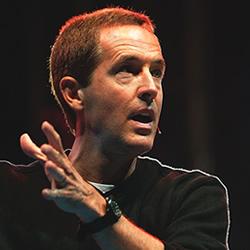“My fully-exploited strengths were of far greater value to our organization than my marginally-improved weaknesses.” I picked this up from Andy Stanley today.
This is part of a hope-based life plan. Too often, we slide into the deficit-based life plan. We organize our approach to life on strenthening our weaknesses, while allowing our strengths to atrophy.
Now, if we are sinning, we need to stop. But if I am not good at Math, I should waste few precious hours as an adult trying to get better at multiplying in my head and figuring the area of a circle. Those who are not good in Math may be blessed with artistic talent, or the ability to listen well. The art or the listening is where they should devote most of their time.
There are two theological underpinnings to this philosophy. First, when God created us, he created us to be less-than-perfect. And most people are less-than-perfect in ways different from each other. This is why we need each other. So here’s my question: if God intentionally created you to be weak in Math, how much time should spend trying to improve your Math ability?
Second, the theology of spiritual gifts tells us that God gave each person an ability that blesses others Every section that deals with spiritual gifts implores disciples to enthusiastically use their gifts. Rather than moping around about how bad you are in Math, enjoy giving your music or attentive ear to people that need it.

